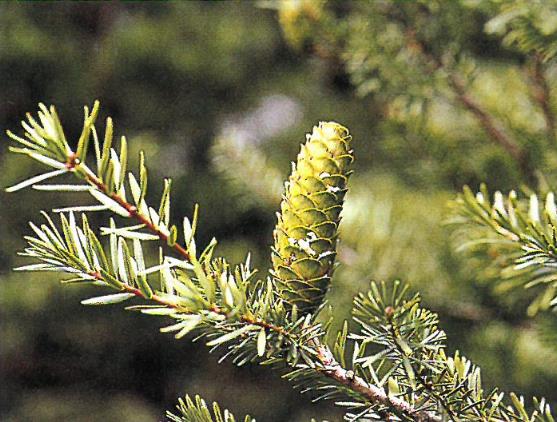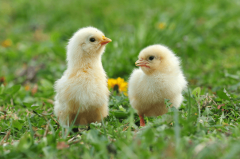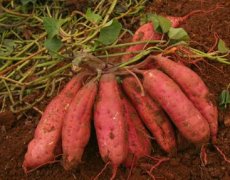Taiwan Cryptomeria fortunei abolishes the name of rare plants, and Taiwan Cryptomeria fortunei can be legally planted as a new horticultural star.
New choice of horticultural tree species the Council of Agriculture officially announced on the 26th that Taiwan Cryptomeria fortunei "natural monuments-precious and rare plants" will be abolished! With the exception of plants protected in nature reserves or announced in accordance with the law, Taiwan fir artificially cultivated through horticulture can be bought, sold and planted freely, and is no longer strictly restricted by the cultural capital law.
Taiwan fir became famous for a while because of a piece of news. The Ting Hsin Wei family planted a large number of Taiwan fir trees in their ancestral houses, but they were found and reported by the public. at that time, Taiwan fir trees were designated as natural monuments in accordance with the Cultural assets Law, and picking or cutting were prohibited, so the holder was later sentenced to a fine.
However, after the lifting of the ban, horticulturists who love the vigorous shape of Taiwan fir trees can now grow them legally. Xia Rongsheng, head of the conservation group of the Forestry Bureau of the Council of Agriculture, said that Taiwan Cryptomeria fortunei is a very good landscape tree species. Taiwan Cryptomeria fortunei has long been in horticulture, but "We are afraid of being picked from the wild, so it has not been released." but now the germination technology of Taiwan Cryptomeria fortunei has been very successful, and there will be no problem with subsequent popularization. as long as we protect the wild habitat and do a good job in the conservation of wild ethnic groups, "other Taiwan Cryptomeria fortunei used as horticultural landscape. It is no problem to breed it artificially.
In recent years, academia has effectively broken through the bottleneck in the cultivation of Cryptomeria fortunei in Taiwan, not only increasing the germination rate, but also reproducing a large number of seedlings. Xia Jung-sheng says that scholars and experts also believe that opening up the planting of Cryptomeria fortunei can increase the number of plants and enhance conservation outside the territory. at the same time, it can also reduce the pressure on wild populations to be stolen.
At present, there are three protected areas of Taiwan Cryptomeria fortunei in the wild: "Pinglin Taiwan Cryptomeria fortunei Nature Reserve", "Dawu Mountain Nature Reserve", and "Taitung Dawu Taiwan Cryptomeria fortunei Nature Reserve". The number of Taiwan Cryptomeria fortunei in the three reserves is about 1,000.
In the early years, due to the characteristics of narrow distribution area, rare quantity, extremely low germination rate of seeds, and difficult growth of seedlings, the number of ethnic groups was very small and needed special protection. therefore, in 1977, according to the announcement of the Cultural Resources Law, Taiwan Cryptomeria fortunei was designated as a precious and rare plant, individuals are prohibited from picking, felling, digging or other means of injury, and the collection and exchange of branches, leaves, flowers, fruits and other specimens are also strictly controlled.
After the abolition of the designation of Cryptomeria fortunei in Taiwan, there are still four species of Cryptomeria fortunei in Taiwan, willow vegetables in Nanhu Lake, Cyclobalanopsis glauca and Sabina vulgaris, which are listed as precious and rare plants in the Cultural Resources Law. At present, the Forestry Bureau has not considered whether these rare plants can follow up and abolish the designation.

- Prev

What are the most serious matters needing attention in raising chickens in spring? What is the general breed of chickens?
Beginners often ask this question, probably because spring is the most active and ordinary time for raising and raising chicks. As long as you have everything you need to upgrade them, you can buy them when you need them. However, chicks bought and raised in winter
- Next

How about mechanized sweet potato harvesting? Mechanized sweet potato harvesting, vine removal, simple and efficient excavation
Traditional sweet potato harvesting is labor-intensive, and imported sweet potato harvesting machines have many shortcomings. Taoyuan Agricultural Improvement Station has developed a "vine removal and harvesting machine." The machine is smaller, less than half the price, and faster than manual harvesting.
Related
- A course of planting techniques and methods on how to grow carrots
- How to plant the latest tulips?
- Is it better to pick tea in the morning or in the afternoon? When is the best time for tea to be picked? what is the third or fifth tea?
- Launch Yuanxiao Happy combination Haocha + Tea Yuan healthy Taste
- Penghu Tourism "Fireworks 20 Parade with You"
- 2022 West Lake Happiness holds "Digital Revitalization Voucher" and draws iphone13 and laptop.
- Banqiao Fuzhou social houses are designed to change start-up combined with police elimination to create a safe and livable environment
- The convenient measure of "mechanical weeding" in Xinbei has been abused and the Agriculture Bureau has imposed heavy penalties on the illegal land consolidation.
- Changgeng University Joins Hands with Four Memory Factories to Rescue Memory Talent Shortage
- The list of Taiwan's top 100 MVP managers is listed by the Director-General of the Farmers' Association of Sanxia District.

